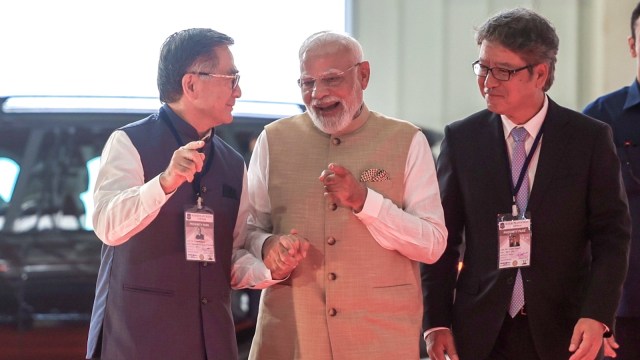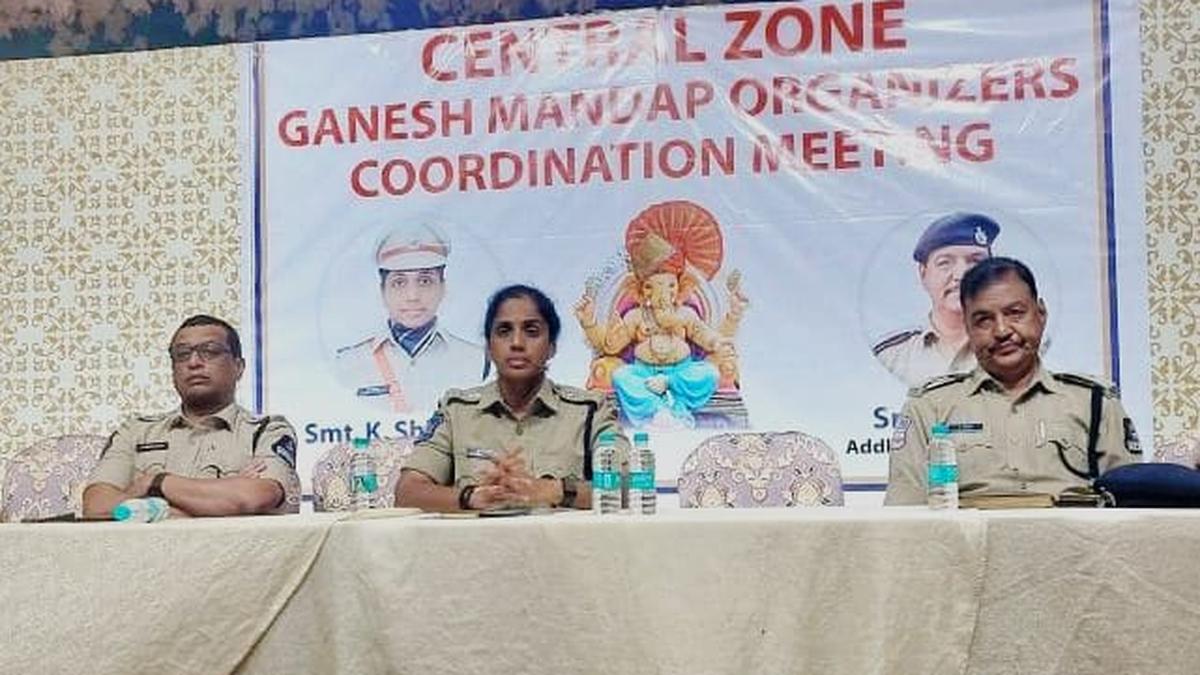ARTICLE AD BOX
 PM Narendra Modi with Suzuki Motors president Toshihiro Suzuki (left), Maruti Suzuki India MD-CEO Hisashi Takeuchi and Gujarat CM Bhupendra Patel in Hansalpur. (ANI)
PM Narendra Modi with Suzuki Motors president Toshihiro Suzuki (left), Maruti Suzuki India MD-CEO Hisashi Takeuchi and Gujarat CM Bhupendra Patel in Hansalpur. (ANI)
As Prime Minister Narendra Modi heads to Japan on August 29-30, the two sides are expected to upgrade the 2008 Joint Declaration on Security Cooperation, launch an economic security initiative on semiconductors, Artificial Intelligence and critical minerals, and increase the investments’ target to 7-10 trillion Yen, The Indian Express has learnt.
Modi and his Japanese counterpart, Shigeru Ishiba, will take part in the 15th India-Japan Annual Summit and are also expected to travel to Sendai — a city known for its semiconductor prowess — in a bullet train. A joint statement and a vision statement will be issued during the visit.
India and Japan are also working on promoting a bilateral energy partnership, starting a digital partnership, and launching a new mobility partnership that encompasses railways, roads and bridges across India, sources said.
While this will be Modi’s eighth visit to Japan, it is his first summit with Prime Minister Ishiba. According to sources, there are three broad elements of the visit — security; economy, science and technology, innovation; and people-to-people exchange.
Modi is expected to meet heads of provincial governments and prefectures in a bid to forge local level partnerships between Japanese local governments and Indian state governments and municipalities.
Sources said the two sides will exchange notes on the current global scenario, before Modi heads to China after his Japan visit. They are expected to share their strategic outlook, in the wake of the tariffs imposed by the US administration under President Donald Trump, and the uncertainty in terms of security commitments on the Indo-Pacific. According to sources, they are likely to work on a realistic and workable cooperation in this context.
India and Japan will definitely move towards upgrading the 2008 Joint Declaration on Security Cooperation, and will review progress in defence and technology transfer. Modi and Ishiba are likely to launch an economic security initiative, which focuses on semiconductors, critical minerals, AI, telecommunication and clean energy. In the economic and science & technology domain, the two sides are expected to frame this pillar as the “backbone” of the bilateral ties.
Story continues below this ad
They will also encourage Japanese investments to India to be upscaled — the two sides had set a target of 5-trillion Yen for public and private investments and financing by 2026. But, sources said, they have already achieved the target in 2025, and they will look to revise the target to 7-10 trillion Yen.
Sources said they will also start a digital partnership, aimed at semiconductors and AI, focussed on public infrastructure. They are also likely to promote a bilateral energy partnership in hydrogen and renewable energy projects. In view of the Japanese involvement in the Ahmedabad-Mumbai bullet train project, the two sides are considering launching a mobility partnership.
With regard to people-to-people exchange, the two sides are expected to figure out how to help Japan’s aging population and India’s need to skill the younger people.
The two Prime Ministers will review the Special Strategic and Global Partnership between India and Japan, including defence and security, trade and economy, technology and innovation, and people-to-people exchanges, as well as discuss issues of regional and global importance.
Shubhajit Roy, Diplomatic Editor at The Indian Express, has been a journalist for more than 25 years now. Roy joined The Indian Express in October 2003 and has been reporting on foreign affairs for more than 17 years now. Based in Delhi, he has also led the National government and political bureau at The Indian Express in Delhi — a team of reporters who cover the national government and politics for the newspaper. He has got the Ramnath Goenka Journalism award for Excellence in Journalism ‘2016. He got this award for his coverage of the Holey Bakery attack in Dhaka and its aftermath. He also got the IIMCAA Award for the Journalist of the Year, 2022, (Jury’s special mention) for his coverage of the fall of Kabul in August 2021 — he was one of the few Indian journalists in Kabul and the only mainstream newspaper to have covered the Taliban’s capture of power in mid-August, 2021. ... Read More
Stay updated with the latest - Click here to follow us on Instagram
© The Indian Express Pvt Ltd



.png)
.png)
.png)
























 English (US) ·
English (US) ·